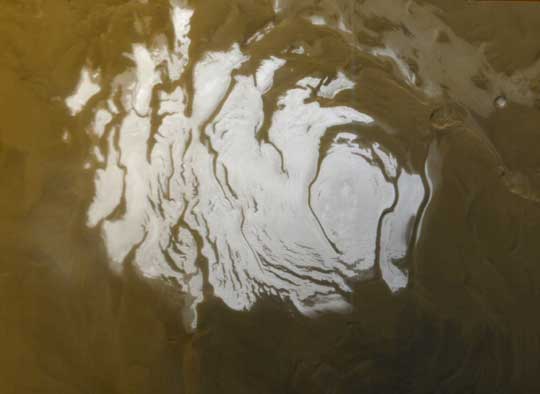Yes. Actually a few studies have looked at this and similar ideas. One shows an overall
decrease in the amount of ice at the Martian poles between 1998 and 2002 (2 Martian years). However, we haven't been observing Mars long enough to really understand long-term trends. No precise measurements date back further than this.
Several feasible ideas have been proposed for non-human effects on the Earth's climate. The most focused on are orbital harmonics (mostly how the aphelion and perihelion coincide with summers and winters over time), variations in the solar output over 40,000-100,000 year cycles, and cosmic ray intensity affecting the formation of cloud cover.
I believe orbital harmonics studies are generally accepted to find too small of an effect.
Long term variations in solar output have been found to be theoretically capable of matching the long term cycles of climate change for both length and magnitude. A mechanism for these changes has also been supported through modelling.
Cosmic ray affects on cloud formation have been shown to be able to theoretically be capable of matching the timing and magnitude of climate change cycles, but I'm not sure if a mechanism has been proposed.
Also, if a solar cause is implicated, what does that say about the effect of man-made emissions, which have definitely increased? As I understand, some level of greenhouse gasses is necessary to explain the comfortable temperatures we currently enjoy. Perhaps greenhouse gasses play a declining role in global climate as concentrations increase.
Lastly, this should probably be in the Cafe.
